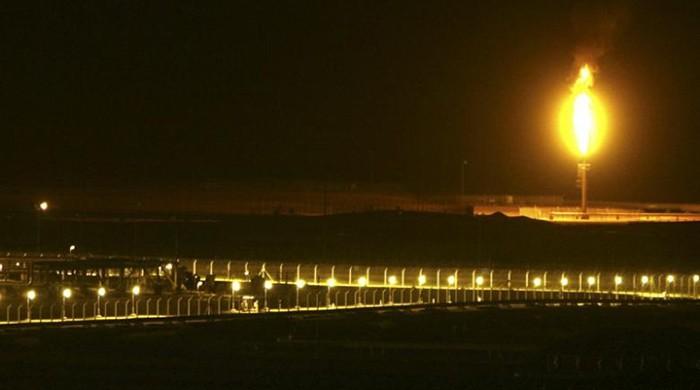Saudis cut oil output to lowest in two years, pledge further reductions
January 13, 2017

ABU DHABI: Saudi Arabia has cut oil output to its lowest in almost two years, its energy minister said on Thursday, as the world's largest oil exporter leads OPEC's drive to eradicate a global glut and prop up prices.
Energy Minister Khalid al-Falih said output had fallen below 10 million barrels per day - more than it had promised as part of a global output cut deal between OPEC and non-OPEC producers.
Such levels were last seen in February 2015, when Riyadh began to steeply raise production to deal a blow to US shale oil producers, effectively becoming the architect of a prolonged oil price crash.
Falih, speaking at the Atlantic Council Global Energy Forum in Abu Dhabi, said output was "not significantly below" 10 million bpd currently and the Kingdom planned to make even deeper cuts in February.
This means Saudi Arabia has cut oil production by more than the 486,000 bpd it agreed to late last year under a global deal to kerb production and stem a fall in oil prices.
Falih also said he expected the oil market to tighten in two to three years, aided by the agreement of OPEC and non-OPEC producers late last year to kerb production.
"We have been moving toward rebalancing the markets for some time," Falih said.
"Even better, the pace of rebalancing will be accelerated by recent production agreements within OPEC and outside. I have confidence in these agreements to bring stability to the global markets."
Falih predicted oil demand would grow by over 1 million barrels a day this year.
"I am confident that the combination of capping production by 25 countries and growth of demand will continue to balance and prices will respond accordingly," he added.
OPEC and non-OPEC producers last month reached their first deal since 2001 to curtail oil output jointly by nearly 1.8 million bpd for an initial six month period to help stem a fall in oil prices and ease a supply glut.
Falih said it was too early to tell if the deal would be extended but said parties to the deal indicated they were willing to extend if necessary.
"For us to project six months forward will be unwise now. All I could say is that everybody around the table in the last few weeks has indicated willingness to extend if necessary".
SHALE OIL NOT A BIG WORRY
Falih also said the prospect of higher cost shale oil production rising as oil prices firm was not a major cause of concern for the oil market.
"I wouldn't be worried by shale on its own ... I am sure that could be absorbed by a market that will be approaching 100 million (bpd) in the next few years."
While Falih said he did not have a specific oil price target, Iraqi oil minister Jabar Ali al-Luaibi told reporters at the same event Iraq wanted to see prices of around $65 a barrel.
"We are not in the business of managing prices... we will leave it to the market to determine the price," Falih said. "We wish for it to be less volatile but the reality today is it is a nervous market."
Brent crude prices LCOc1 were up $1 at $56.10 a barrel by 1458 GMT.
Luaibi said Iraq had slashed its exports by 170,000 bpd and was cutting them further by 40,000 bpd this week. He said Iraq was committed to the success of the production-cut agreement "even though it should have been exempted".
OPEC expects global oil inventories to fall by the second quarter of this year in response to the agreement, OPEC Secretary-General Mohammed Barkindo said.
Kuwait has cut its oil exports by more than 133,000 bpd mainly to customers in North America and Europe while maintaining full exports to Asia, Kuwaiti Oil Minister Essam Al-Marzouq said.











